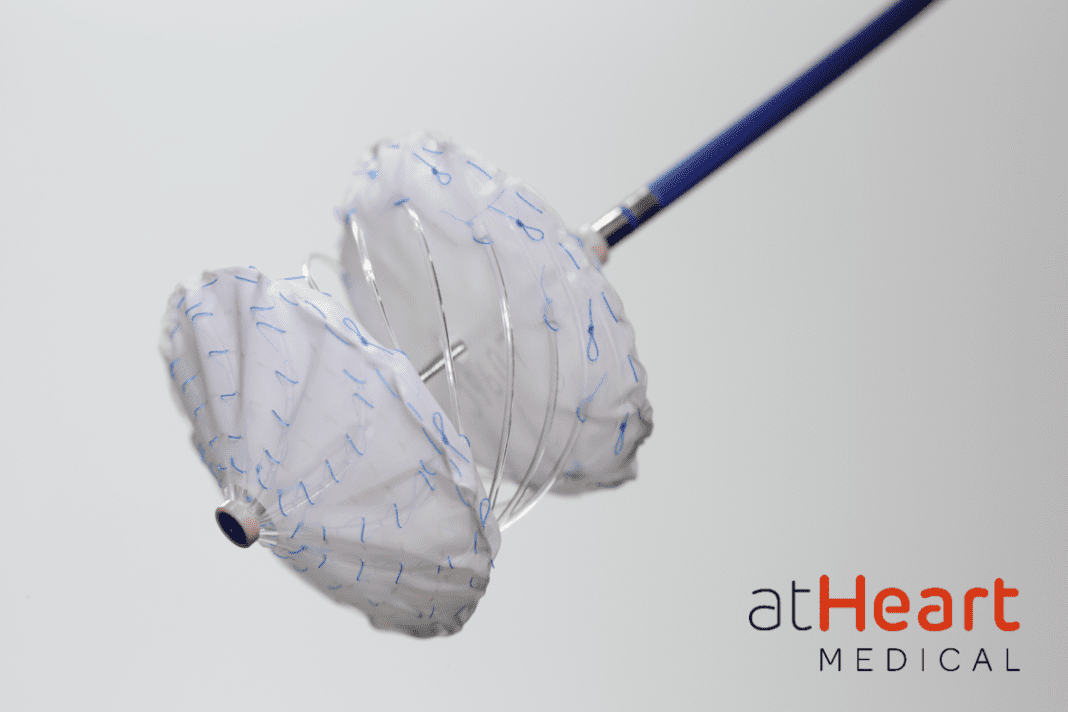April 20, 2021
atHeart Medical, a medical device company dedicated to establishing the new standard of care for closure of atrial septal defects (ASD).
atHeart Medical announced today that it has commenced operations and is initiating its U.S. Investigational Device Exemption (IDE) trial. The company is led by seasoned global medtech executive, Laurent Grandidier, with support from an exceptional management team that has decades of experience with medical device start-ups and major corporations.
The company’s first product, the reSept ASD Occluder, is the first occluder with a metal-free, bioresorbable frame. The novel implant is poised to overcome the limitations of current occluders, as it aims to reduce the risk of complications associated with the long-term presence of metal in the heart and to preserve future treatment options requiring transseptal intervention. Initial clinical experience demonstrates long-term clinically effective closure of the ASDs treated with the company’s device.1
“I am excited to lead atHeart Medical and for the potential of our first product, the reSept ASD Occluder, for patients requiring ASD closure,” commented Laurent Grandidier, CEO of atHeart Medical. “With such an experienced team, we have hit the ground running and are focused on preparing initial clinical sites in our U.S. IDE pivotal trial.”
The ASCENT-ASD pivotal trial is an FDA-approved IDE study that will evaluate the safety and efficacy of the reSept ASD Occluder for treating patients with clinically significant, isolated ASD. The prospective, single-arm investigation will enroll up to 250 patients at multiple sites globally. Primary endpoints will be compared with established performance goals for previously FDA-approved transcatheter ASD occluders.
“Currently available occluders leave a significant amount of metal in the heart, which could cause issues later in life,” stated Larry Latson, MD, Co-Principal Investigator of the IDE trial and Director of Pediatric Interventional Cardiology at the Joe DiMaggio Children’s Hospital in Hollywood, Florida. “The unique design of this bioresorbable frame is promising, especially for my younger patients. I look forward to this upcoming trial.”
Commonly described as a “hole in the heart”, an ASD is an opening in the septum between the left and right atria. Most ASDs are congenital defects, affecting six in 10,000 births.2 They can also be the result of a procedure that requires transseptal crossing. A large atrial septal defect can cause extra blood to overfill the lungs and overwork the right side of the heart. If not treated, the right side of the heart eventually enlarges and weakens. The blood pressure in the lungs can also increase, leading to pulmonary hypertension. When ASDs require closure, the standard of care is to have an occluder implanted through a minimally invasive procedure.
